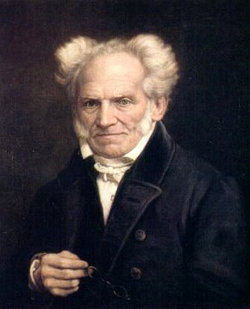He Said, She Said: Archives
July 4, 2008
Happy Fourth Of July genre: He Said, She Said & Hip-Gnosis & Polispeak
"Question with boldness even the existence of a god; because if there be one he must approve of the homage of reason more than that of blindfolded fear."
-Thomas Jefferson, Letter to Peter Carr, August 10, 1787
"I concur with you strictly in your opinion of the comparative merits of atheism and demonism, and really see nothing but the latter in the being worshipped by many who think themselves Christians."
-Thomas Jefferson, letter to Richard Price, Jan. 8, 1789 (Richard Price had written to TJ on Oct. 26. about the harm done by religion and wrote "Would not Society be better without Such religions? Is Atheism less pernicious than Demonism?")
"History, I believe, furnishes no example of a priest-ridden people maintaining a free civil government. This marks the lowest grade of ignorance of which their civil as well as religious leaders will always avail themselves for their own purposes."
-Thomas Jefferson to Alexander von Humboldt, Dec. 6, 1813.

"All eyes are opened, or opening, to the rights of man. The general spread of the light of science has already laid open to every view the palpable truth, that the mass of mankind has not been born with saddles on their backs, nor a favored few booted and spurred, ready to ride them legitimately, by the grace of God."
-Thomas Jefferson, letter to Roger C. Weightman, June 24, 1826 (in the last letter he penned)
"The most detestable wickedness, the most horrid cruelties, and the greatest miseries that have afflicted the human race have had their origin in this thing called revelation, or revealed religion."
-Thomas Paine, from The Age of Reason
"The civil Government, though bereft of everything like an associated hierarchy, possesses the requisite stability, and performs its functions with complete success, whilst the number, the industry, and the morality of the priesthood, and the devotion of the people, have been manifestly increased by the total separation of the church from the State."
-James Madison (1819).
"Religion and government will both exist in greater purity, the less they are mixed together."
-James Madison
Daniel DiRito | July 4, 2008 | 12:05 AM |
link
| Comments (1)
![]()
![]()
May 23, 2007
Notable Quote: Hitchens On Faith genre: He Said, She Said

Christopher Hitchens has been all over the media of late.
The release of his new book, God Is Not Great: How Religion Poisons Everything, is likely responsible for much of the attention.
Today he has a piece in the Washington Post in which he compares astrology to religion.
The following is a notable excerpt from that article that is worthy of quoting.
Credulity, in the sense of simple-mindedness, is often praised by those who claim to admire the “simple faith" of the devout. But the problem with credulity is that it constitutes an open invitation to the unscrupulous, who will take advantage of those who are prepared to believe things without evidence. This is why, for so many of us, the notion of anything being “faith-based" is a criticism rather than a recommendation.
I couldn't agree more and I certainly couldn't have said it any better.
Daniel DiRito | May 23, 2007 | 1:33 PM |
link
| Comments (0)
![]()
![]()
May 15, 2006
Proverbially Speaking genre: He Said, She Said
“Proverbially Speaking" is a recurring posting here at Thought Theater. The intention of the category “He Said, She Said" is to present sayings, proverbs, and quotations that provoke thought. From time to time, I will try to relate them to current events. Having grown up in an Italian family with immigrant grandparents, I had the fortune, over the years, to learn numerous sayings that had been translated from Italian into English. I’ve long been fascinated by such sayings and proverbs and particularly the lessons they seek to impart. You’re encouraged to comment on the ones presented as well as add your own sayings, proverbs, and quotations for discussion.
Today's proverb has been used for centuries and many countries claim it to be their own. There are minor derivations that result from the particular language of any given country. According to Professor Mieder, the fish-rot proverb dates back to 1674, when it appeared in a treatise called "An Account of the Voyage to New England." Today the saying exists in an estimated 36 European languages. "The proverb is based on the fact that fish do begin to spoil at the head," explains Mieder. "As a figure of speech, it means that any problem in an organization can be traced back to the boss."
It seemed to be an appropriate proverb given the current record low poll numbers for President Bush as well as the many personnel issues that seem to plague this second term. The wisdom of the proverb would infer that the problems of this administration can be traced back to President Bush, the "head". On a lighter note, I would guess that many feel this is a two headed fish; the second one being Vice President Cheney. Regardless, it seems that much of the problem stems from an arrogance rooted in an ideology of absolute thinking that is not inclined to listen to opposing thoughts and ideas.
The following are two versions of the proverb. The first one is the most quoted and the second one is the way I first heard it in my Italian family.
When a fish rots, it starts from the head.
When a fish goes bad, it starts in the head.
Daniel DiRito | May 15, 2006 | 6:49 AM |
link
| Comments (0)
![]()
![]()
April 19, 2006
Camille Paglia: A Primer genre: He Said, She Said

Camille Paglia is difficult to characterize despite the fact that she fits into a number of defining categories. She is a noted intellectual, an educator, an author, and a social and cultural critic. Both within and beyond these classifications, she defies convention. In my opinion, her contradictions are her greatest contributions. Rather than adopting a purist approach, she has often deconstructed elements of accepted establishments while retaining other segments that fit her particular constructs. Like her or not, her observations push the envelope; forcing traditionalists to defend positions many prefer to accept as settled. The following are some of her notable quotations from BrainyQoute:
Capitalism is an art form, an Apollonian fabrication to rival nature. It is hypocritical for feminists and intellectuals to enjoy the pleasures and conveniences of capitalism while sneering at it. Everyone born into capitalism has incurred a debt to it. Give Caesar his due.
My thinking tends to be libertarian. That is, I oppose intrusions of the state into the private realm - as in abortion, sodomy, prostitution, pornography, drug use, or suicide, all of which I would strongly defend as matters of free choice in a representative democracy.
Teenage boys, goaded by their surging hormones run in packs like the primal horde. They have only a brief season of exhilarating liberty between control by their mothers and control by their wives.
Woman is the dominant sex. Men have to do all sorts of stuff to prove that they are worthy of woman's attention.
The following is from Wikipedia, the free encyclopedia:
From Wikipedia:
Camille Anna Paglia (born April 2, 1947 in Endicott, New York) is a social critic, intellectual, author, and teacher. She is University Professor of Humanities and Media Studies at the University of the Arts in Philadelphia, Pennsylvania. She has been called the "feminist that other feminists love to hate", one of the world's top 100 intellectuals, and by her own description "a feminist bisexual egomaniac".
Paglia is an intellectual of many apparent contradictions: a classicist who champions art both high and low, with a view that human nature is inherently dangerous, while at the same time celebrating dionysian revelry in the wilder, darker sides of human sexuality.
She came to public attention shortly after the publication of her first book, Sexual Personae: Art and Decadence from Nefertiti to Emily Dickinson, in 1990, when she began writing about popular culture and feminism in mainstream newspapers and magazines. As a public intellectual, Paglia challenged the positions of the so-called "liberal establishment" at the time, which included figures in media, academe, activism and politics such as Gloria Steinem, Andrea Dworkin, professors at many Ivy League universities, and organizations such as National Organization for Women and ACT UP.
She describes herself as a feminist, and as a Democrat who voted for Bill Clinton and Ralph Nader, but her world view embraced risque elements not typically associated with those groups, such as fetishism, pornography, and prostitution. She is a trenchant critic of contemporary feminists, going so far as to compare victim-focused feminists with the Moonies. As a proponent for the legalization of drugs and prostitution, and the lowering of sexual consent laws, she identified herself with libertarian thought.
Ferociously critical of the influence that French philosophers Jacques Lacan, Jacques Derrida and Michel Foucault had on the teaching of humanities in American academe, she advocated that comparative religion, art history and the close reading of canonical literature be brought to the center of education, with greater attentiveness toward chronology and facts in the student's approach to history.
Her most notable allies and supporters (though, of course, for different reasons), were Andrew Sullivan, Christina Hoff Sommers, Virginia Postrel, Harold Bloom, Bill Maher, and Matt Drudge. Elise Sutton, a dominatrix who advocates female domination of males, describes Paglia as a female supremacist and a friend.1
In addition to having written five books, she has been a columnist for Salon.com since its inception, is currently a contributing editor at Interview magazine, and is on the editorial board of the classics and humanities journal Arion. She continues to write articles and reviews for popular media and scholarly journals, such as her long article, "Cults and Cosmic Consciousness: Religious Vision in the American 1960s," published in Arion in winter 2003.
In September 2005, she was ranked #20 in a survey of the "Top 100 Public Intellectuals" in the world, in a list compiled jointly by editors of the journals "Foreign Policy" and "The Prospect" (UK). The list, which included only 10 women, also included feminist thinkers Germaine Greer, Martha Nussbaum, and Julia Kristeva.
She is currently (as of 2006) writing a third essay collection for Vintage Books, and working on a book to serve as a companion piece to Break, Blow, Burn, which will be concerned with the visual arts rather than poetry.
The following link is to an article from Salon in which Paglia was interviewed. It offers additional insight into her more recent thoughts as well as a discussion of her latest work, Break, Blow, Burn, a compilation of poetry with Paglia's associated cultural critique: Salon
Daniel DiRito | April 19, 2006 | 6:30 AM |
link
| Comments (0)
![]()
![]()
April 17, 2006
Proverbially Speaking genre: He Said, She Said
"Proverbially Speaking" is a recurring posting here at Thought Theater. The intention of the category "He Said, She Said" is to present sayings, proverbs, and quotations that provoke thought. From time to time, I will try to relate them to current events. Having grown up in an Italian family with immigrant grandparents, I had the fortune, over the years, to learn numerous sayings that had been translated from Italian into English. I've long been fascinated by such sayings and proverbs and particularly the lessons they seek to impart. You're encouraged to comment on the ones presented as well as add your own sayings, proverbs, and quotations for discussion.
I went to a Catholic high school in Canon City, Colorado called Holy Cross Abbey. The school was an adjunct to a Benedictine monastery. My father and his brothers attended the school as well. Brother Louis, one of the more colorful members of the monastery, was a longstanding fixture at the school and his tenure spanned both generations of my family. He was known for his interesting observations and sayings including the one that follows.
In these times of political partisanship and culture wars fueled by those on the opposite ends of the spectrum, this saying of Brother Louis's seems appropriate and insightful. Its timeless nature supports the truth it holds. The saying has its roots in Gnostic and early Christian teachings.
"In order for the pendulum to find its center, it must swing to both extremes."
Daniel DiRito | April 17, 2006 | 11:39 AM |
link
| Comments (2)
![]()
![]()
April 7, 2006
Oy Vey Day genre: He Said, She Said & Tongue-In-Cheek
Oy Vey Day is a recurring posting here at Thought Theater. It's strictly lighthearted and meant to bring a smile or a chuckle. Strange as it may seem, even though I grew up in an Italian American Catholic home, I've always felt some kinship with Jewish culture and familial dynamics. Perhaps it's the notion of guilt that both seem to embrace or perhaps it's the numerous unique expressions and insightful conversational banter that is found in both Italian and Jewish cultures. Regardless, I've always had a curiosity for Jewish or Yiddish terminology. I have a few books that list many of these expressions and offer insight into their origin and meaning.
Today's posting is from the book Meshuggenary, written by Payson R. Stevens, Charles M. Levine, and Sol Steinmetz. I've chosen to share some Samuel Goldwyn expressions. Samuel Goldwyn, of the famed Hollywood company Metro-Goldwyn-Mayer has always been one of my favorite people to quote. The first time his words really caught my attention was when his death was announced. In reporting his death, the news mentioned a few of his better known Goldwynisms. The one that stood out was, "If you think you need your head examined, you need your head examined". I've found many of Goldwyn's expressions to be similar in nature to the countless Yogi Berra-isms.
The following has been taken from Meshuggenary:
Yidisher Kop: Goldwynisms and Other Mind-Benders
Der yidisher kop - literally, the Jewish head - works in mysterious ways. Yiddish has countless down-to-earth but semi-cryptic expressions that are like koans to make you wake up and think: Oyb mayn mume volt gehat redar volt zi geven a tramvay (if my aunt had wheels she'd be a trolley car).
Some of the best-known mindbenders originated from the yiddisher kop of Samuel Goldwyn (1882 - 1974), the famous Hollywood mogul who never lost his Yiddish accent and mindset. Like a Yiddish Yogi Berra ahead of his time, Goldwyn became famous for sayings like "Gentlemen, include me out" (on quitting the organization) and "A verbal contract isn't worth the paper it's written on". Here are some other classis Goldwynisms, which demonstrate the enduring and charming sarcasm of this famous Yiddish wit:
Don't pay attention to the critics - don't even ignore them!
I can answer you in two words: im-possible.
Our comedies are not to be laughed at.
I don't want any yes-men around me. I want everybody to tell me the truth even if it costs them their jobs.
I read part of the book all the way through.
If I could drop dead right now, I'd be the happiest man alive.
Never let that bastard back in my office again - unless I need him.
Next time I want to send an idiot on some errand, I'll go myself.
Spare no expense to make everything as economical as possible.
The wide screen will only make bad films twice as bad.
They didn't release that film; it escaped.
We're overpaying him, but he's worth it.
Why should people go out and pay to see bad movies when they can stay at home and see bad television for nothing.
Daniel DiRito | April 7, 2006 | 9:01 AM |
link
| Comments (0)
![]()
![]()
March 5, 2006
In Search Of Truth (Updated) genre: He Said, She Said
"But life is short and truth works far and lives long: let us speak truth."
...Arthur Schopenhauer (02/22/1788 - 09/21/1860)

Arthur Schopenhauer was an influential 19th century philosopher with a generally pessimistic leaning. Often accused of being arrogant and aloof, he saw life as essentially evil and futile but was also hopeful that art (aesthetics) and a sympathy for others could offer escape from pain and suffering. He is seen by many as misogynistic although he also said that "women are decidedly more sober in their judgment than (men) are" as well as more sympathetic. He also was one of the first to write about homosexuality as a natural occurence. I find the above quotation timeless and meaningful. I also think its good commentary on the search for truth...we're all searching for it and we often think we speak it...but in fact we often don't. It simply points out that one can never abandon the search for more truth.
UPDATE:
Unbeknownst to me, Schopenhauer was referenced in the recent movie Wedding Crashers. A friend of mine sent me this link. Obviously, the movie is using Schopenhauer's philosophies for comic purposes but if you are interested in some serious discussion of his philosophies, check out the same site here and here for a couple of informative podcasts.
Daniel DiRito | March 5, 2006 | 8:43 AM |
link
| Comments (0)
![]()
![]()
December 2, 2005
Proverbially Speaking genre: He Said, She Said
"Proverbially Speaking" is a recurring posting here at Thought Theater. The intention of the category "He Said, She Said" is to present sayings, proverbs, and quotations that provoke thought. From time to time, I will try to relate them to current events. Having grown up in an Italian family with immigrant grandparents, I had the fortune, over the years, to learn numerous sayings that had been translated from Italian into English. I've long been fascinated by such sayings and proverbs and particularly the lessons they seek to impart. You're encouraged to comment on the ones presented as well as add your own sayings, proverbs, and quotations for discussion. The following is one of my favorites:
This old saying was recited to me on numerous occasions when I sought to make an issue of something that others felt would be best left alone...it's akin to another saying...pick your battles well. It goes like this:
"If you kick every stone in the road, the only sure thing you will end up with is a sore toe."
Daniel DiRito | December 2, 2005 | 1:44 PM |
link
| Comments (0)
![]()
![]()